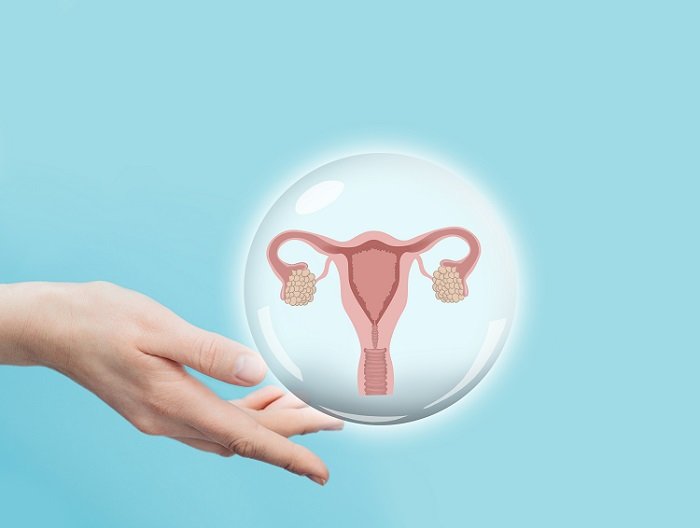Last Updated on June 6, 2023
No, it is not typically recommended to get pregnant after endometrial ablation as it can increase the risk of complications. Endometrial ablation is a procedure that removes or destroys the lining of the uterus, making it difficult for a fertilized egg to attach and grow properly.
While there have been cases of successful pregnancies after endometrial ablation, it is rare and carries a higher risk of complications such as miscarriage, preterm birth, and abnormal implantation. It is important to discuss family planning options with your doctor before undergoing endometrial ablation as it is considered a permanent form of birth control.
In this article, we will explore the potential risks and considerations for women who are considering pregnancy after endometrial ablation.

Credit: www.eehealth.org
Understanding What Endometrial Ablation Is
If you are someone who experiences heavy menstrual bleeding or has painful periods that interfere with your daily life, you may have considered endometrial ablation as a solution. Endometrial ablation is a medical procedure that involves removing the lining of your uterus (endometrium) to reduce or stop menstrual bleeding.
Here are some key things to know about endometrial ablation:
What Is Endometrial Ablation?
Endometrial ablation is a medical treatment that removes or destroys the lining of the uterus, called the endometrium. This can be done in several ways, including using heat, electricity, or chemicals to destroy the endometrial tissue.
Why Is Endometrial Ablation Done?
Endometrial ablation is a treatment option for women who have heavy menstrual bleeding, the medical term for which is menorrhagia. It may also be recommended for women with painful periods (dysmenorrhea) if other treatments have not been successful. Endometrial ablation is not a contraceptive and should not be considered a permanent solution for preventing pregnancy.
Women who undergo endometrial ablation must still use some form of birth control to prevent pregnancy.
Different Types Of Endometrial Ablation Procedures
There are several different methods for performing endometrial ablation. Some of the most common types of endometrial ablation procedures include:
- Radiofrequency ablation: Uses heat to destroy the endometrial lining.
- Electrosurgery: Uses an electric current to remove the endometrial tissue.
- Microwave energy: Uses microwave energy to destroy the endometrial tissue.
- Cryoablation: Uses extreme cold to freeze and destroy the endometrial lining.
- Hydrothermal ablation: Uses hot water to remove the endometrial tissue.
- Balloon ablation: Uses a heated balloon to destroy the endometrial lining.
Risks And Complications Of Endometrial Ablation
As with any medical procedure, there are risks and complications associated with endometrial ablation. These can include:
- Infection
- Bleeding
- Perforation of the uterus
- Damage to the bowel or bladder
- Pain or cramping
- Adverse reaction to anesthesia
It is important to discuss the potential risks and complications of endometrial ablation with your healthcare provider before deciding whether this treatment is right for you.
Endometrial ablation is a medical procedure used to reduce or stop menstrual bleeding in women who experience heavy or painful periods. Although there are risks and complications associated with the procedure, endometrial ablation can be an effective treatment option for those who have not found relief from other treatments.
Consult with your healthcare provider to determine if endometrial ablation is right for you.
Fertility After Endometrial Ablation
Can You Get Pregnant After Endometrial Ablation?
Endometrial ablation is a procedure used to treat heavy menstrual bleeding. It is a common procedure for women who experience menorrhagia or heavy periods. However, one of the common concerns women have about endometrial ablation is how it affects their fertility.
Understanding The Impact Of Endometrial Ablation On Fertility
Endometrial ablation can significantly reduce a woman’s chances of getting pregnant. During the procedure, the lining of the uterus is removed or destroyed. The lining of the uterus plays a vital role in pregnancy. It provides a nourishing environment for the fertilized egg to implant and grow.
When the lining is destroyed, the chances of pregnancy become significantly reduced.
Factors That Affect Fertility After Endometrial Ablation
Several factors affect fertility after endometrial ablation. These include:
- Age: Fertility decreases as a woman ages. Women over 35 tend to have fewer eggs and a lower chance of pregnancy.
- The type of endometrial ablation procedure: Different endometrial ablation procedures have different effects on fertility. Some may have a higher risk of scarring, which can reduce fertility.
- Hormonal imbalances: Endometrial ablation can cause hormonal imbalances, which can affect fertility.
Pregnancy Risks After Endometrial Ablation
If a woman does get pregnant after endometrial ablation, there are several risks that she should be aware of. These include:
- Ectopic pregnancy: This is when the fertilized egg implants outside the uterus. It can be life-threatening and requires immediate medical attention.
- Increased risk of complications: Women who have had endometrial ablation are at increased risk of complications during pregnancy, such as miscarriage or preterm delivery.
It is essential to discuss the risks and benefits of endometrial ablation with your doctor and whether it is the right option for you. If you want to get pregnant in the future, endometrial ablation may not be the best choice for you.
Frequently Asked Questions On Can You Get Pregnant After Endometrial Ablation?
Can You Get Pregnant After Endometrial Ablation?
– yes, pregnancy is still possible but rare after endometrial ablation.
What Are The Chances Of Getting Pregnant After Endometrial Ablation?
– the chance of getting pregnant after endometrial ablation is less than 1%.
Is It Safe To Get Pregnant After Endometrial Ablation?
– getting pregnant after endometrial ablation can lead to complications, so it’s not recommended.
How Long After Endometrial Ablation Can I Get Pregnant?
– it’s recommended to wait at least 1 year after endometrial ablation before trying to get pregnant.
What Are The Risks Of Getting Pregnant After Endometrial Ablation?
– possible risks include miscarriage, ectopic pregnancy, and severe bleeding. It’s not recommended.
Conclusion
To sum it all up, getting pregnant after endometrial ablation is rare, but definitely possible. While the procedure significantly reduces the chances of pregnancy, the risk never fully disappears. If you’ve had this procedure and are wishing to conceive, your best course of action is to consult with an experienced gynecologist.
They can help you determine the best fertility treatment options and guide you through the pregnancy process safely. In the end, the decision to try and conceive after endometrial ablation ultimately rests with you and your partner. You know your body better than anyone else, and with the proper guidance, resources, and care, you can make the decision that’s right for you.







